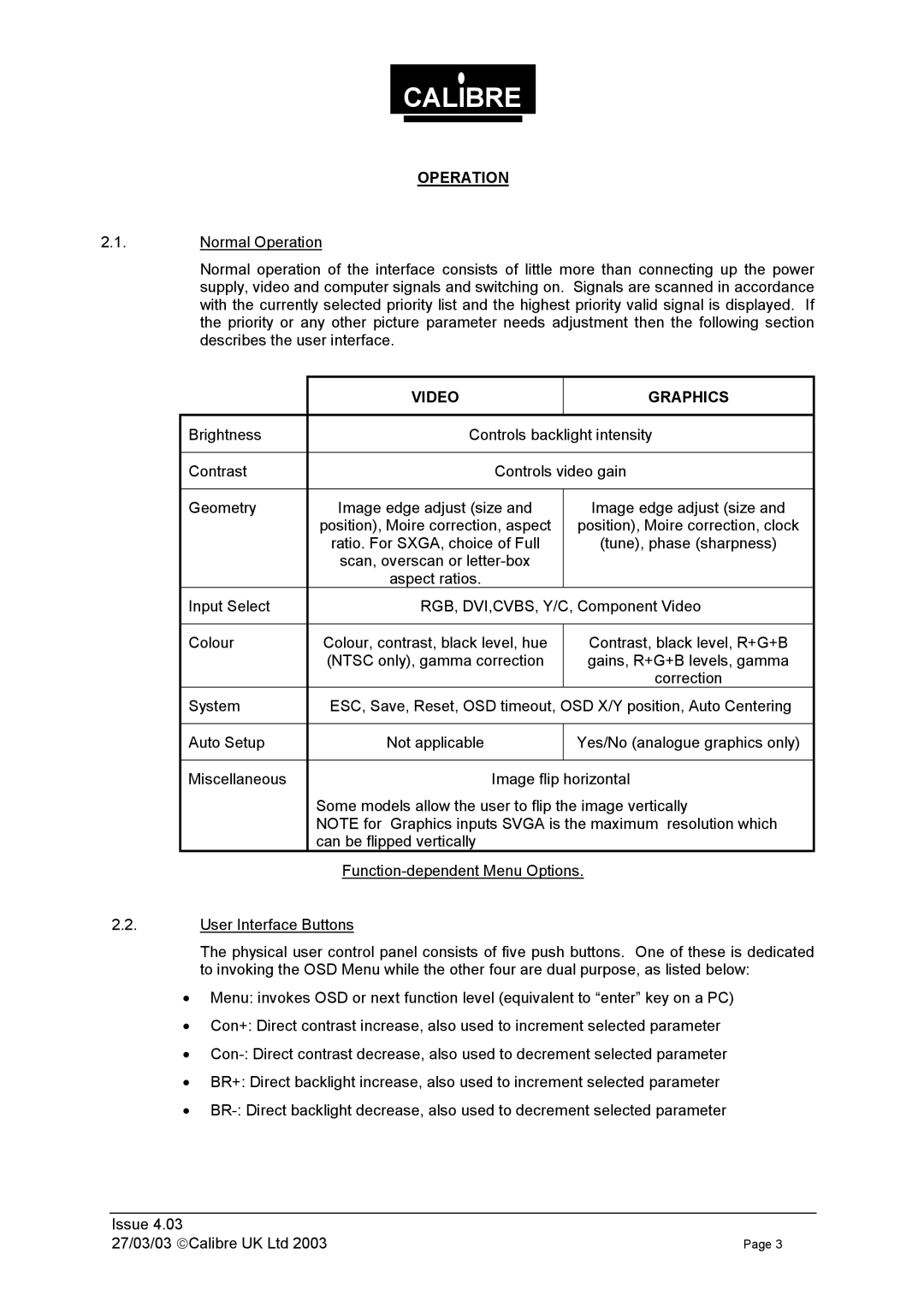
CALIBRE
OPERATION
2.1.Normal Operation
Normal operation of the interface consists of little more than connecting up the power supply, video and computer signals and switching on. Signals are scanned in accordance with the currently selected priority list and the highest priority valid signal is displayed. If the priority or any other picture parameter needs adjustment then the following section describes the user interface.
| VIDEO | GRAPHICS |
|
|
|
Brightness | Controls backlight intensity | |
|
| |
Contrast | Controls video gain | |
|
|
|
Geometry | Image edge adjust (size and | Image edge adjust (size and |
| position), Moire correction, aspect | position), Moire correction, clock |
| ratio. For SXGA, choice of Full | (tune), phase (sharpness) |
| scan, overscan or |
|
| aspect ratios. |
|
Input Select | RGB, DVI,CVBS, Y/C, Component Video | |
|
|
|
Colour | Colour, contrast, black level, hue | Contrast, black level, R+G+B |
| (NTSC only), gamma correction | gains, R+G+B levels, gamma |
|
| correction |
System | ESC, Save, Reset, OSD timeout, OSD X/Y position, Auto Centering | |
|
|
|
Auto Setup | Not applicable | Yes/No (analogue graphics only) |
|
|
|
Miscellaneous | Image flip horizontal | |
| Some models allow the user to flip the image vertically | |
| NOTE for Graphics inputs SVGA is the maximum resolution which | |
| can be flipped vertically |
|
| ||
2.2.User Interface Buttons
The physical user control panel consists of five push buttons. One of these is dedicated to invoking the OSD Menu while the other four are dual purpose, as listed below:
•Menu: invokes OSD or next function level (equivalent to “enter” key on a PC)
•Con+: Direct contrast increase, also used to increment selected parameter
•
•BR+: Direct backlight increase, also used to increment selected parameter
•
Issue 4.03 |
|
27/03/03 Calibre UK Ltd 2003 | Page 3 |
